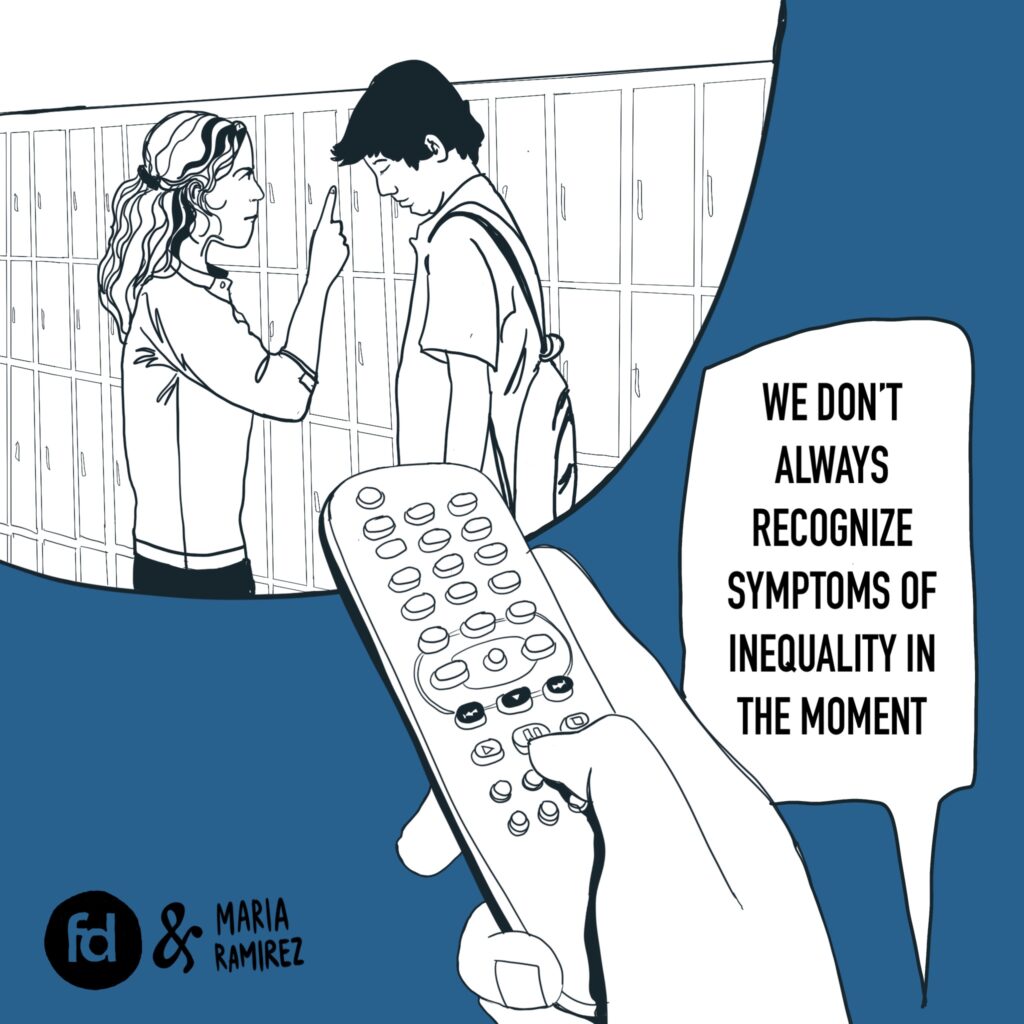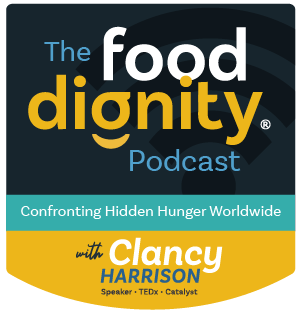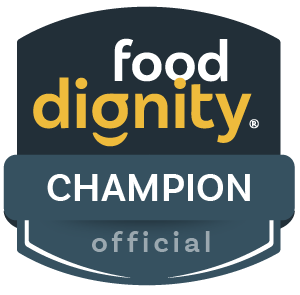Episode 5: The Power of Diversity

About the Podcast
Clancy speaks with racial equity leader Maria Ramirez. They talk about deconstructing trauma, college hunger, and how race and equity intersect all these issues. Their conversation is thoughtful, tough and worth a listen!
About Maria Ramirez
Maria is the Director for Faculty Development and Diversity at NYU Steinhardt where she provides administrative leadership and ensures diversity and equity among the faculty through strategic planning. She also serves on the Steinhardt Equity, Diversity & Inclusion Taskforce, as well as the NYU Mothers of Color group that aims to provide support and advocacy for members of the NYU community that identify as working women of color with children. Maria is a Steinhardt alumna of the Higher Education and Student Affairs graduate program, and her scholarship focused on supporting student parents from minoritized groups on college campuses. During that time, she presented at the NASPA and NYU Student Affairs conferences about her background and studies. She is also an alumna of the Misericordia Women with Children program. Maria is mom to two children, and lives with her family in Clifton, NJ where she is an advocate for her community to local leadership and governance.
Discussion Takeaways
- Maria is an advocate for the voiceless in her community – for the black indigenous people of color, English language learners, and those with diverse abilities. Professionally she strives to increase access to and retention of students in higher education, specifically for people with young kids. Food insecurity is one of the many factors that cause people to end their schooling.
- Messages of inclusivity and encouragement for vulnerable students need to come from all levels of the college institution.
- Whether it’s at a college institution or a food pantry, many people receiving food help don’t feel like they deserve it. They believe others need the food more than they do.
- So many minority and other vulnerable students need to deconstruct and unlearn the concept of being undeserving. Their lack of things is not because of their lack of trying. The odds are actually stacked against them.
- 40% of all black women in collegiate programs have dependent children. Only a handful of them have the supports they need like stable housing, childcare, book stipends, etc. People’s basic needs must be met so that they can achieve their goals.
- If students are food insecure, more than likely they’re housing insecure. These factors more often affect students with dependents, students of color, or students who need to live off campus because of their socioeconomic status.
- We don’t recognize the symptoms of inequality when they’re happening. But, leaders should be able to identify them before they occur.

- Never stop learning. Never consider yourself a finished project!
The beautiful image above was created by Rebecca Garofano, our Food Dignity Institute Lead and Illustration Specialist. You can find more of her work at @VeggieDoodleSoup on Instagram and at her website veggiedoodlesoup.com.
#1 tip to improve access to healthy food
No matter what area you work in, look at the intersection of race and what you can do to shed a light on inequalities that exist. Then, consider what strategies you can employ to rid of these issues.

Each week on the Food Dignity® Podcast, the Food Dignity® Movement’s Clancy Harrison hosts a wide variety of hunger experts and other people making changes on the frontlines. Join us as we dive deep into conversations that will change the way you think about food insecurity.
Listen to our trailer!
Want to learn more about how we might work together?

Fight hidden hunger by becoming a
Food Dignity® Champion and take the HIDDEN HUNGER PLEDGE >


